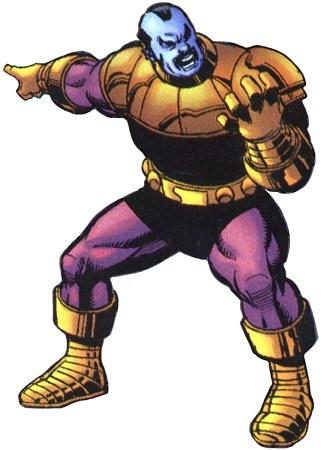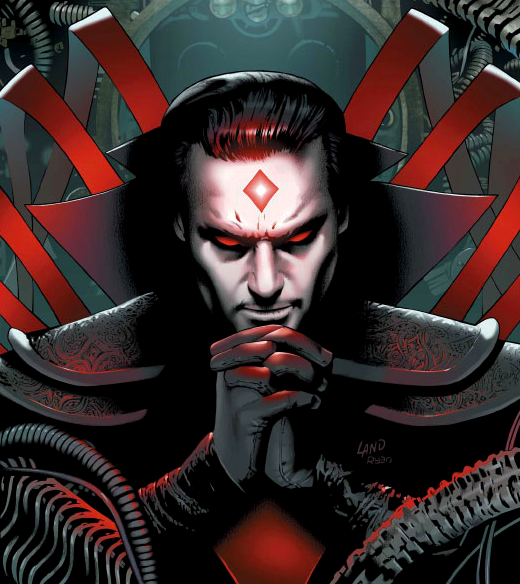This week we’re really getting down to brass tacks (anyone know what that means by the way?) with what I consider to be two of the most basal archetypes of scientific villainy.
Wanna get caught up? Scope out Part 1 and Part 2 if you so choose.
Most think of scientists as people that run elaborate experiments. I have had honest-to-goodness arguments with people about the fact that science is also done based on observation too. There are some types of scientists who spend their entire careers being very productive only looking at stuff (e.g. astronomers). The more subtle point, that I’m happy to discuss on my less comics, more science site Science… sort of, is that observational scientists still make predictions about the world and then test those predictions by observing new things, not necessarily in a controlled experimental way. So the take home message is the observation and experimentation are wholly distinct, but both fall well under the umbrella of good science. But what about when good science goes bad?
At the heart of both the categories below are brilliant people who pushed too far at the periphery of knowledge and it cost them their own humanity? It’s an old story, one I’m not sure happens all that often in the world of actual science, but is integral to so many stories I’d be a fool to discount it’s reality as a theme in and of itself. So without further ado let’s wrap this puppy up!
 Explorer Without Scruples
Explorer Without Scruples
Notable Examples: Krona (the character, not the currency), Braniac
Honorable mention: The Watcher (dude never gets involved)
After mentioning off hand the idea of a Faustian bargain I started to panic and think that maybe I needed to include Faust as his own category, especially since there is a villain in the DCU who is not just named Faust, but to my knowledge actually IS Faust. However, the more I thought about it the more I realized that not only is Faust as presented in the DCU more a magic character, he also exists within the scope of the explorer without scruples.
For those not familiar, Faust makes a bargain with Mephisto (aka Mephistopheles) (the same one as Spider-Man, dude loves a good bargain) in order to gain immortality such that he may pursue knowledge indefinitely. However, when he becomes bored he must submit his soul to Mephistopheles for recompense. Depending on the version you read Faust either pays the ultimate price for his knowledge or becomes so smart that he can escape his fate or something in between. Nothing about his story makes him especially villainous. He doesn’t put anyone else in harm’s way, but he does stop at nothing to pursue knowledge and that’s something he definitely has in common with this villainous designation.
There’s an old idiom about science that you can’t observe something without altering it. I don’t think that applies in all cases of science, especially outside the quantum realm. I can easily see a fossil exposed by wind and rain, and even without digging it out of the ground I may be able to learn something about that animal and about the environment it came from. What’s altered in that scenario? But sometimes the idiom holds true. Krona was bold enough to see the beginning of time and thus via his observation created the multiverse. Had he considered the repercussions of observation more carefully we may not have had him as a rogue Guardian and active bad guy.
Sometimes things observed cannot be unobserved.
The Evil Experimenter
Notable Examples: Mr. Sinister, Hugo Strange, The High Evolutionary
 This was actually a tough category to come up with examples for. It’s so common to find characters that experiment be given their comeuppance via accident and then turn to villainy. It takes a truly evil intellect to have suffered no tragedy yet still wish to use their intellect for evil. I think it’s why Goebbels as much as any Nazi besides Hitler leaves such a resounding bad taste in our mouths. We can have sympathy for Dr. Doom, he did get his pretty face all blown up, but Hugo Strange didn’t have to be such a jerk.
This was actually a tough category to come up with examples for. It’s so common to find characters that experiment be given their comeuppance via accident and then turn to villainy. It takes a truly evil intellect to have suffered no tragedy yet still wish to use their intellect for evil. I think it’s why Goebbels as much as any Nazi besides Hitler leaves such a resounding bad taste in our mouths. We can have sympathy for Dr. Doom, he did get his pretty face all blown up, but Hugo Strange didn’t have to be such a jerk.
The other interesting feature is the return of the Faustian bargain in the case of Mr. Sinister. In this instance the bargain provider is Apocalypse, not Mephistopheles, but it represents a nice continuation of the theme that these guys will literally give up being human if it means pursuing their science. I think many scientists would agree that it would be a hard choice to make given the option. To think of the benefits immortality might have for so many fields of science is a powerful thought indeed. It gives these characters a human resonance beyond their ridiculous capes and metal skin.
Every scientist I know has entered the field for two reasons: they’re giant nerds, and they thought they might be able to actually do some good. I don’t know the person that has entered science to cause harm, and I hope to never meet them. Even the people that design bombs justify it as a way to protect their people and country. It’s almost enough to argue that my examples above see some net positive from their actions and can somehow make it right in their own worldview.
Then you see what they do to other people and realize they’re probably just jerks.
Concluding Thoughts
Science, like anything else (including comics) is a double-edged sword. It can be used for good or ill, and often those two goals can be at odds with each other. I thoroughly enjoyed exploring the various ways a less than altruistic person may choose the path of wickedness. I know there is need for further refinement, but sometimes you just have an idea and you want to cast it out amongst your friends and peers for feedback, criticism and new insight. So I may very well return to this topic if I feel there’s enough new ground to cover, but in the meantime, add your comments, let me know what territory is left to explore and try to avoid falling into any of the categories I’ve covered the past 3 weeks.
Ryan Haupt is a scientist who resists being evil all the time. No one has yet noticed. Maybe he’ll turn evil soon just to spite them all. If that happens he’ll probably announce it on his podcast Science… sort of.


I always thought “getting down to brass tacks” referenced upholstering. Brass tacks were what held fabric to the frame. But, I guess it could come from any similar craft – furniture making, cobbling, etc. Point is: the brass tack has been supplanted by the staple in our bottom line world. Brass tacks don’t rust – staples do, and now I sound like a grumpy old man pining away for frontier sensibilities.
Comicwise – I have some Outsider issues (mid 1995?) where Faust is quite the shitass, placing his kid(s) in harms way and some other foul stuff I can’t immediately recall.
Any chance we could get links to Parts 1 & 2?
@themanagement Yes, that was kind of a ridiculous oversight. Here’s part 1 and here’s part 2, I’ll add them to the article as well. Thanks for bringing it up!
Krona is very interesting. Possibly because I can understand what he was after originally. I’d love to witness creation.
I know almost nothing about Mr. Sinister, but if I had to guess, I’d say he’s rather sinister.
Thanks, these were interesting.
@stuclach What I know of Mr. Sinister is that he’s a 200-year-old fetishist who likes to psychologically abuse boys in orphanages, especially boys named Scott Summers. As is par for the course in X-Men villainy, he is akin to Cartman in the ninja episode of “South Park” in that his power is to have all the powers. The only power he doesn’t have is fashion sense.
I have really enjoyed all of these.